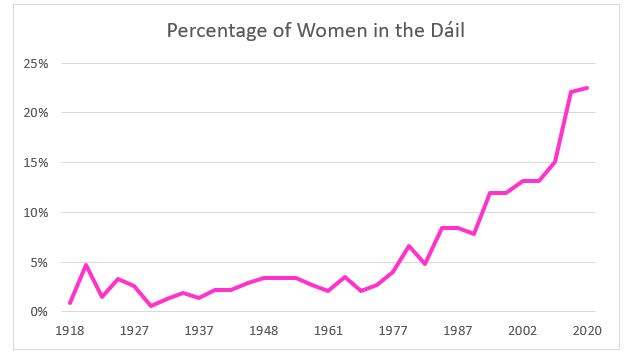We have barely emerged from the chaos of the 2020 general election ballot count and, while the media is full of discussion of the transformations at foot, I am struck by some of the facts about gender equality and representation. In this election cycle, a record high number of women were nominated – 162 of the 531 candidates and there was a female candidate running in every constituency (a first). However, at the end of the day only 36 women in comparison to 124 men had been elected. This was up from 35 women elected in 2016.



There is no doubt an opportunity for change with the success of some left wing parties, but when you look at the profile of those elected, the lack of diversity is undeniable. Gender representation is one thing, I could make the same point in relation to class, ethnicity, race, dis/ability, sexuality, but gender stands out because, simply put, more than half the population is female, and our political world should reflect that. I am not making a blanket statement that all women who are elected are exemplary politicians or have the aim of equality and greater redistribution at the heart of their political projects. But representation matters.
In my past PhD research I wanted to understand gendered health inequalities, and ended up looking at the ‘invisible inequalities’ that shape so much of women’s lives. One such example is the way gender inequality systematically constrains the ability of women to exercise their political voice. This isn’t necessarily a set of deliberate choices people make, but the culmination of many everyday choices and results in an economic, political and social world in which perspectives and needs of women aren’t seen or addressed.
I think everyone would accept that the interests of diverse groups of people such as women, minorities, people of colour are better served when decision makers and those in power are informed of the lived experience of those individuals. But it’s better yet if people from these groups are in positions of power – this helps to ensure policies and decisions around the provision of services or changes to laws are made for and by those impacted most by them, and truly serve those they impact most.
For certain policy agenda to actually be on the table – such as issues around childcare, eldercare, reproductive health, domestic violence, labour market access and flexibility, immigration, homelessness, cycling – we need representatives in the political sphere who experience these issues and know how important they are. Make every TD cycle to work and I would bet that we would soon have better cycle paths in Dublin.
– Amy
Note: Endless thanks to Leo for the spreadsheets underpinning the graphs.




